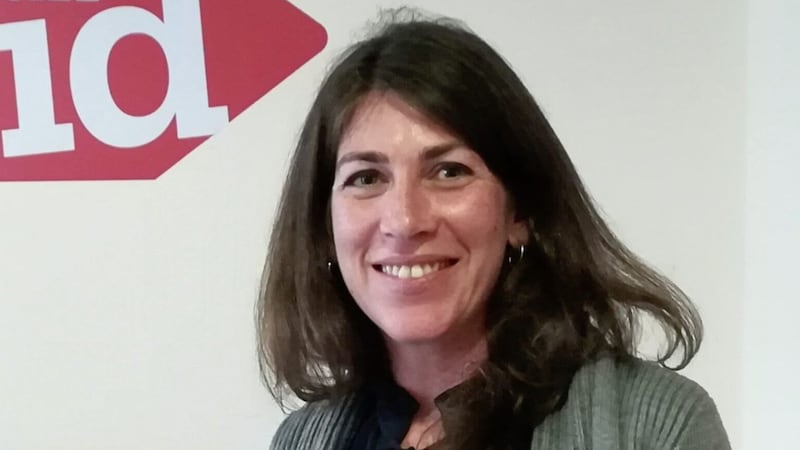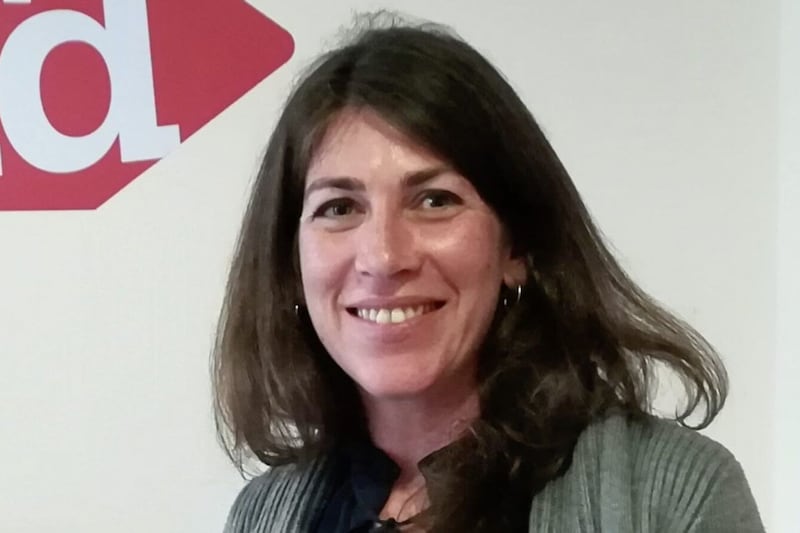RONIT Sela is one foreign visitor to Belfast who grasps the nuances and intricacies of the issues facing the north in the post-Good Friday Agreement era.
She knows all about 'peace walls' – how they protect and restrict communities at the same time – and has developed a sixth sense in knowing when trouble on the streets might quickly become incendiary.
As the director of The Association for Civil Rights in Israel (ACRI), Ronit is an Israeli Jew who works in peace-building in her home country and across the occupied territories of Palestine.
Last month marked the 50th anniversary of the Six Day War and the subsequent Israeli occupation of Palestinian territory, where tens of thousands have died as a result of the conflict – the overwhelmingly majority of them Palestinian.
Ronit has an unique perspective on the still ongoing national struggle for both Israelis and Palestinians; a position that can find her at odds with fellow Israelis, and friends and family she meets.
"I'm always asked about the work that I do by friends and family and those I encounter by chance," she tells me.
"The more tense and violent the situation is, the more people would be aggressive about the way they ask. It's easier to support my kind of work when things are quiet and people feel safe.
"The way that I often explain and present my work is that I believe that human rights have universal value and limiting human rights to the rights of Israeli citizens does not understand human rights fully."
A former journalist, Ronit joined ACRI in January 2009. She has worked in the organisation's International Relations, Public Outreach and Occupied Palestinian Territory departments and has served as Director of ACRI’s Human Rights in East Jerusalem Project.
Sponsored by Christian Aid Ireland (CAI), she visited Belfast and Dublin to take part in the Transitional Justice summer school and spoke to Christian Aid Ireland's staff in Belfast and Dublin about the human rights situation in the Israel/Palestine region and ACRI’s particular areas of focus.
CAI supports both Palestinian and Israeli organisations, working towards a just and viable solution to the ongoing conflict.
On her first trip to the north of Ireland, Ronit found that speaking to other human rights activists at the University of Ulster was revealing.
"We had our peace agreement shortly before yours (the 1994 Cairo Agreement, which saw Israel agreeing to withdraw from the Gaza Strip and allow limited Palestinian self-rule)," she tells me.
"I think that it's just so sad that after 20-something years now, we are still very much in a violent place. Through my work I’m sometimes exposed to the violence and I’m good at fleeing before danger starts.
"I think that's the one thing that you learn from this job. I’ve learned it from Palestinian friends and friends who are more accustomed to it than me – to realise two steps ahead of when violence is about to start."
Considering the 50th anniversary of the Six Day War, Ronit said: "It has been a very eventful 50 years, so things have changed dramatically over that time.
"These not always positive changes necessarily but you have a situation today that is radically different to what it was.
"So change is possible but the question is what change will we see in the next 50 years. I’m a big believer in change and things that seemed impossible can be possible with change."
But does she ever see a time when the conflict might end?
"I work a lot along the wall, the separation barrier that we have on the West Bank and work on checkpoints and other issues, so it’s hard to imagine it ever going now – but you never know?" she adds, shrugging her shoulders in a hopeful gesture.
"We have a national struggle between two nations that want to have a homeland in the same geographic area.
"Israel was really intimidated and in danger from the other Arab armies around when it went to war.
"What would be most helpful from people who want to improve the situation is to take a stance that supports a universal approach – and that's to say that all Israelis and Palestinians need to feel secure. At the moment, they do not.
"I would acknowledge without hesitation that Palestinians are more exposed now in comparison to Israelis: to having their basic rights violated, to being killed.
"But both societies are exposed to that and all people are living in fear to certain degrees. The international support that I would find helpful is one that doesn't take sides."
:: Find The Association for Civil Rights in Israel online at ACRI.org.il/en



